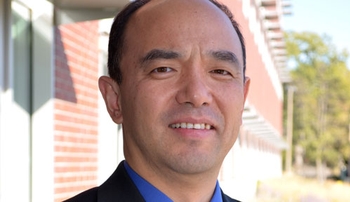The University of Nebraska Board of Regents on Friday approved the Center for Reducing Health Disparities at UNMC’s College of Public Health.
Although the Center for Reducing Health Disparities has operated since 2006, it became a regents-recognized center with the board’s action.
From health fairs, smoking cessation programs and parenting workshops to support groups for breast cancer survivors and people with diabetes, the Center for Reducing Health Disparities collaborates with community organizations and government agencies to improve public health and the quality of health and wellness of racial/ethnic minorities and rural and underserved populations by reducing and ultimately eliminating health disparities.
Dejun Su, Ph.D., director of the Center for Reducing Health Disparities, said the center’s team has developed far-reaching outreach and education partnerships in the community and is now poised to build research strength.
“Nebraska is doing well in terms of U.S. health indicators, but in Omaha we still have many health disparities issues, whether they are infant mortality rates, chronic disease prevalence, mental health, health literacy, or access to affordable care, that give us the passion to work closely with community partners on a daily basis to develop cost-effective programs to reduce and eliminate health disparities,” he said.
“The center serves as a valuable platform for UNMC scholars, staff and students to partner with community stakeholders and residents to initiate and sustain cost-effective health programs and other health promotion activities.”
Four goals have been identified to guide the center’s future activities. These goals are:
- Enhancing the role of UNMC in addressing disparities in health outcomes among Nebraskans through consistent community engagement, partnerships, and advocacy;
- Promoting translational research that would help reduce disparities in health status and health care at the local state, national and global levels;
- Diversifying the sources of funding support for the center and gradually reduce its dependence on internal support from UNMC; and
- Supporting UNMC’s education initiatives in health disparities.
In other action, the Board of Regents dissolved the Center for Humanities, Ethics and Society. The center has served its purpose and is no longer needed, said Jane Meza, Ph.D., interim dean of the College of Public Health.
“The College continues to mature and our focus has moved toward five core disciplines of public health: biostatistics, epidemiology, environmental health science, health policy and management and social and behavioral sciences,” she said.
